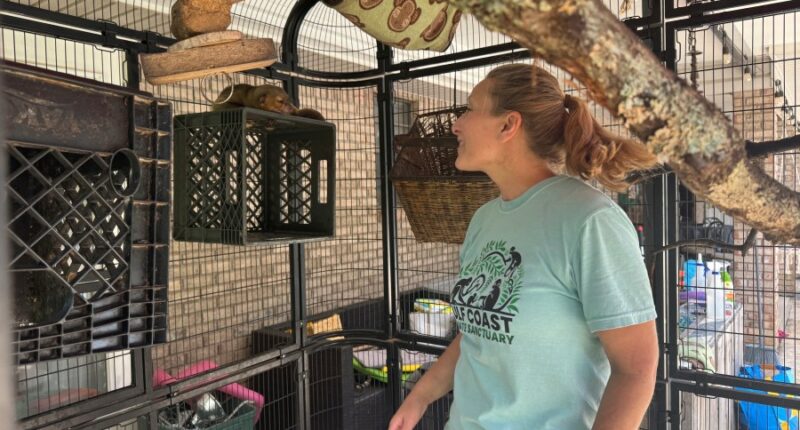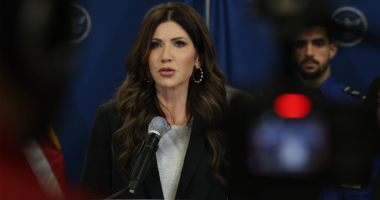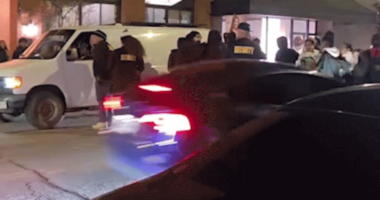Share this @internewscast.com

PERKINSTON, Miss. (AP) — In the company of a lively spider monkey named Louie, an Army veteran who has battled with post-traumatic stress disorder for years finds comfort and tranquility.
“Being out here has brought a lot of faith back to me,” said John Richard. “There’s no feeling like it.”
The connection was formed last fall when Richard assisted a pair of married veterans in establishing the Gulf Coast Primate Sanctuary. He offered his skills to construct the enclosure now housing Louie in the rural southeast of Mississippi.
During a recent interaction, Louie swiftly climbed onto Richard, clinging to him with his arms and tail as if offering a hug. In response, Richard gently placed his hand on the monkey’s back, speaking softly until Louie unwound himself and moved away.
“He makes these little noises in my ear, almost as if he’s telling me, ‘I love you,’” Richard shared. “It’s like he knows I mean no harm and trusts me.”
Richard said his connection with Louie helped more than any other PTSD treatment he received since being diagnosed more than 20 years ago.
This story resonates with April Stewart, the sanctuary’s creator and an Air Force veteran who says her PTSD stemmed from military sexual trauma.
“It was destroying my life. It was like a cancer,” she said. “It was a trauma that was never properly healed.”
Stewart has always found solace in animals. While creating a healing space for veterans with PTSD wasn’t her initial plan, the sanctuary has naturally evolved into such a refuge for some of its volunteers.
“By helping the primates learning to trust, we’re also reteaching ourselves how to trust, and we’re giving ourselves grace with people,” she said.
Her 15-acre property, nestled amid woods and farmland, is filled with rescue dogs, two rather noisy geese and a black cat. It’s also now home to three spider monkeys, two squirrel monkeys and two kinkajous, a tropical mammal that is closely related to raccoons.
The sanctuary in the town of Perkinston, about 30 miles (50 kilometers) due north of the Gulf coast, includes three large enclosures for the different species. Each has a smaller, air-conditioned area and a large fenced-in outdoor zone, where the primates swing from platforms and lounge in the sun. Checking on the animals — changing their blankets, bringing food and water — is one of the first and last things Stewart does each day.
However, she can’t do it alone. She relies on a group of volunteers for help, including several other veterans, and hopes to open the sanctuary to the public next summer for guided educational tours.
Stewart and her husband, also a veteran, decided to open the sanctuary in October after first rescuing and rehoming monkeys. With the help of two exotic-animal veterinarians, they formed a foundation that governs the sanctuary — which she said is the only primate sanctuary in Mississippi licensed by the U.S. Department of Agriculture — and ensures the animals will be cared for even when the Stewarts are no longer able to run it themselves.
All the animals were once somebody’s pet, but their owners eventually couldn’t take care of them. Stewart stressed that primates do not make good or easy pets. They need lots of space and socialization, which is often difficult for families to provide.
The sanctuary’s goal is to provide as natural a habitat as possible for the animals, Stewart said, and bring them together with their own species.
“This is their family,” she said.

















